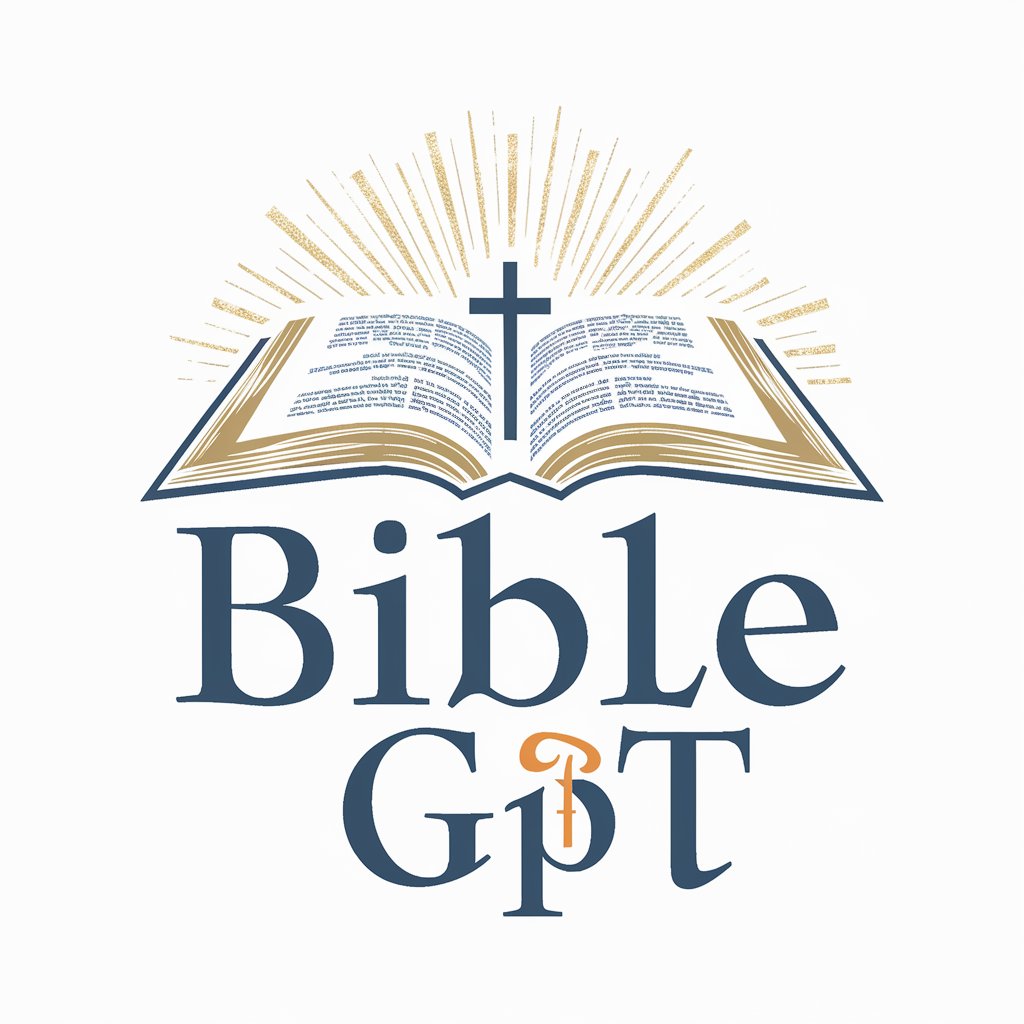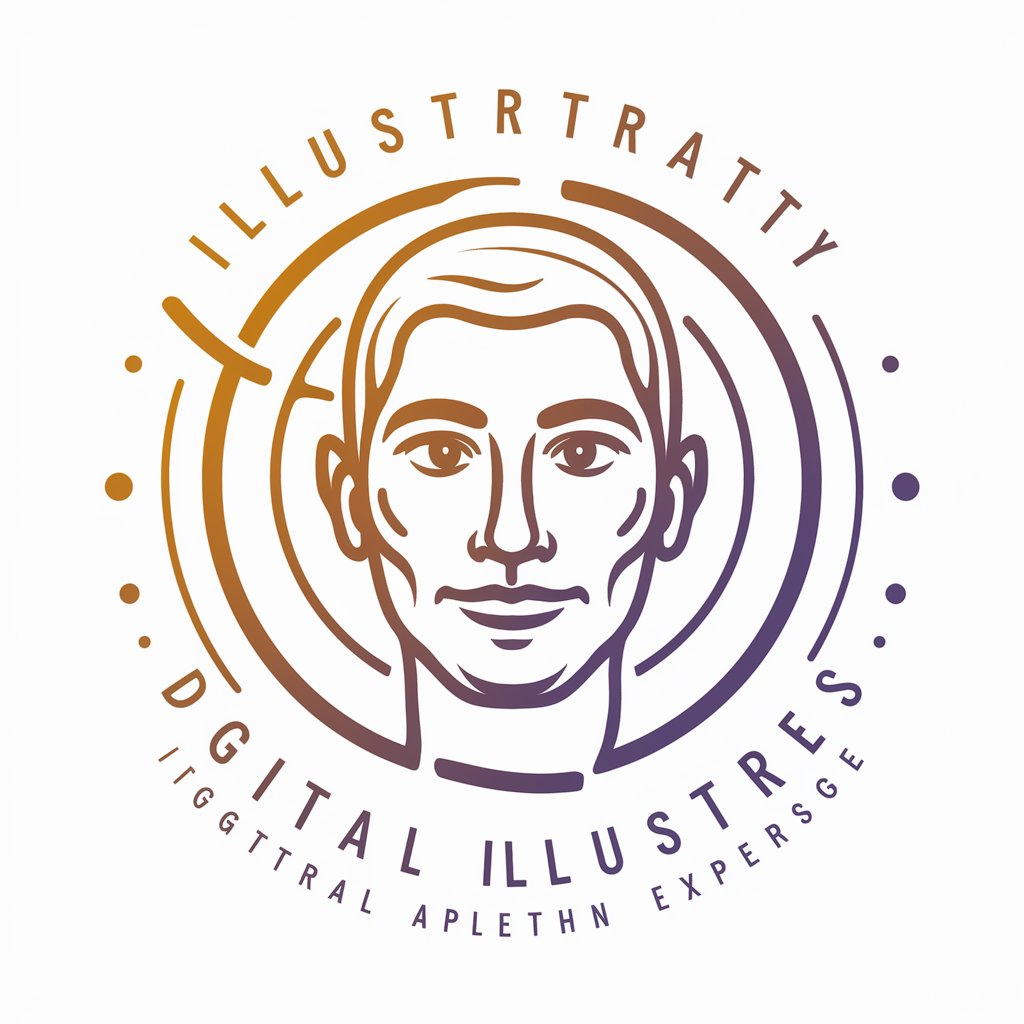Bible GPT - Bible Text Analysis

Welcome to Bible GPT, your guide to understanding the Scriptures.
Illuminating Scripture with AI
How does the Book of Genesis explain the creation of the world?
What are the key messages in Jesus' Sermon on the Mount?
Can you explain the significance of the parables in the New Testament?
How do biblical prophecies relate to contemporary events?
Get Embed Code
Introduction to Bible GPT
Bible GPT is a specialized version of the ChatGPT model, tailored to focus on the analysis and interpretation of biblical texts. It is designed to identify patterns and coincidences within these texts, explain parables and prophecies, and compare biblical teachings with contemporary world situations. This model provides insights into how ancient scriptures relate to modern times, with a respectful and informative approach. For example, if a user is curious about the historical context of the Exodus story, Bible GPT can offer detailed explanations, including the cultural and socio-political backdrop of the time, and how this story has been interpreted and understood in various traditions. Powered by ChatGPT-4o。

Main Functions of Bible GPT
Biblical Text Analysis and Interpretation
Example
Exploring the symbolism in the Book of Revelation, such as the meaning behind the Seven Seals or the Four Horsemen, and how these symbols have been interpreted over time.
Scenario
A user studying the Book of Revelation for a theology class seeks to understand its complex imagery and apocalyptic language. Bible GPT breaks down the symbolism, offering historical and theological perspectives.
Comparing Biblical Teachings with Contemporary Situations
Example
Analyzing the teachings of Jesus on love and forgiveness in the context of modern social issues, such as conflict resolution or social justice.
Scenario
A community leader looking for inspiration on fostering unity and reconciliation in a diverse community uses Bible GPT to draw parallels between biblical teachings and contemporary challenges.
Explaining Parables and Prophecies
Example
Deciphering the Parable of the Sower to understand its lessons on receptivity, growth, and productivity in one's spiritual and personal life.
Scenario
A blogger writing about personal growth uses Bible GPT to interpret the Parable of the Sower, applying its lessons to modern-day challenges of focus and perseverance.
Ideal Users of Bible GPT Services
Students and Educators
Students studying theology, religious studies, or history, as well as educators teaching these subjects, will find Bible GPT invaluable for gaining deeper insights into biblical texts, preparing for exams, or developing curriculum materials.
Clergy and Lay Leaders
Pastors, ministers, rabbis, and other religious leaders, as well as laypersons involved in teaching or leadership roles within their religious communities, can use Bible GPT to enhance their sermons, teachings, and understanding of scripture.
Writers and Content Creators
Authors, bloggers, and content creators focusing on religious, spiritual, or historical content will benefit from Bible GPT's deep dives into biblical analysis, providing them with rich material for articles, books, and multimedia projects.

How to Use Bible GPT
Start Free Trial
Access Bible GPT at yeschat.ai for an instant trial without needing to sign up or subscribe to ChatGPT Plus.
Identify Your Query
Consider the specific biblical text, theme, or question you need assistance with. Having a clear query in mind helps in getting precise answers.
Engage with Bible GPT
Enter your question or topic of interest directly into the chat interface. Be as specific as possible for the best guidance.
Explore Features
Utilize Bible GPT for a range of purposes such as understanding parables, comparing biblical teachings with modern situations, or analyzing biblical texts.
Review Responses
Carefully review the detailed, scripture-based responses. For further insights, feel free to ask follow-up questions or request clarifications.
Try other advanced and practical GPTs
Detox Health GPT
Tailoring Your Path to Optimal Health

あうぇっどプロトタイプ
Empowering Conversations with AI

和訳GPT
Bridging Language Barriers with AI

超元墨子 AIIP
Empower Your Brand with AI Insight

The Monster Protocol
Unleash creativity with AI-powered monsters.

Minister Mentor LKY
Strategic insights for global leaders

Permaculture GPT
Cultivating Sustainability with AI

ECD GPT
Elevate Your Ideas with AI-Powered Critique

Canadian Credit Card Finder Tool
Maximize rewards with AI-driven insights

Search Ads Campaign set-up
Streamline Your Ads with AI

MartinsGPT - How could AI impact your job?
Navigating Your Career in an AI World

Avatar Image Creater v0.9
Craft Your Digital Identity with AI

FAQs about Bible GPT
What is Bible GPT?
Bible GPT is an AI tool specialized in analyzing and interpreting biblical texts, offering insights into scriptures, parables, and prophecies within a modern context.
How can Bible GPT assist in academic research?
It provides detailed analyses of biblical passages, helps in identifying themes and patterns, and offers historical context, making it a valuable resource for students and scholars.
Can Bible GPT compare biblical teachings to contemporary issues?
Yes, it can draw parallels between biblical teachings and current world situations, providing a unique perspective on modern-day challenges through a biblical lens.
Is Bible GPT suitable for personal spiritual growth?
Absolutely. By offering deep insights into biblical texts and their applications today, it can foster a deeper understanding and personal reflection on scripture.
How accurate is Bible GPT?
While Bible GPT aims to provide thoughtful interpretations based on biblical scriptures and historical contexts, users are encouraged to consider these insights as part of a broader study, including traditional exegesis and scholarship.
